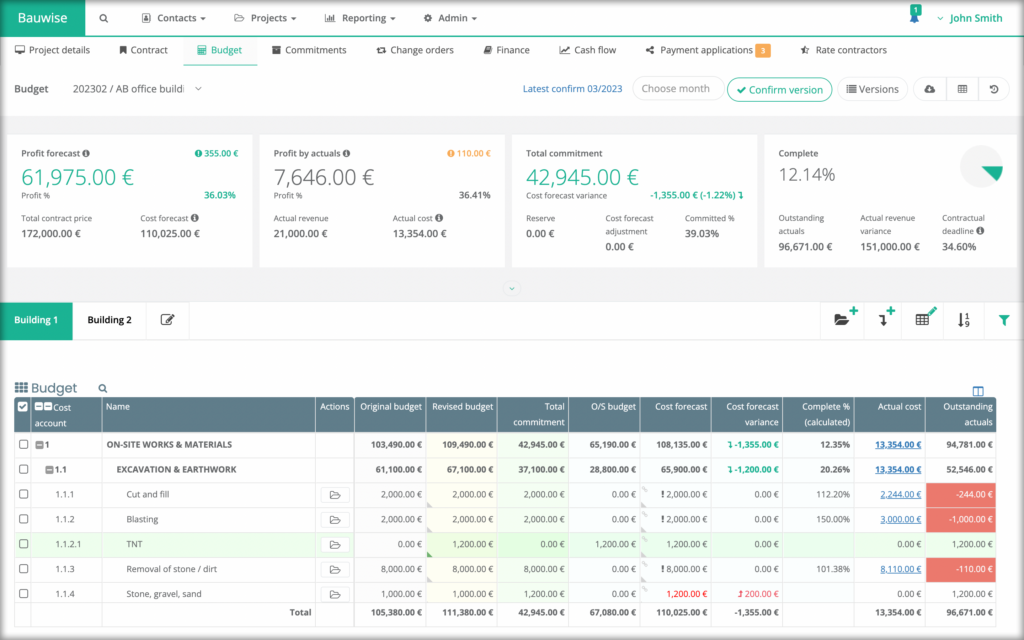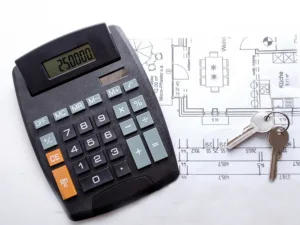A well-organized construction budget is vital for the successful completion of any project. It ensures that all aspects of the project are financially accounted for, from the initial design phase to the final touches. Understanding each budget category helps project managers and stakeholders make informed decisions, manage resources effectively, and maintain control over the project’s financial health. Here’s an in-depth look at the essential construction budget categories:
20 most important construction budget categories
- Equipment: Costs associated with purchasing or renting construction machinery and tools. This includes the maintenance and operation costs of such equipment.
- Contingency: A reserved fund for unexpected expenses. This budget is crucial for addressing unforeseen challenges that arise due to changes in project scope, delays, or unexpected conditions at the construction site.
- Permits and Fees: Expenses related to obtaining the necessary building permits and fees required by local, state, or federal regulations to commence and continue construction legally.
- Fixed Costs: These are expenses that do not change throughout the project, such as salaries for permanent staff, monthly equipment lease payments, and office rental fees.
- Materials: Costs for raw materials and supplies needed for construction, such as concrete, wood, steel, and finishing materials.
- Indirect Costs: Expenses not directly tied to physical construction. This includes design fees, legal fees, insurance, and other professional services.
- Labor: Expenses related to hiring workers, including wages, benefits, and overtime. This category may be divided into direct labor (on-site workers) and indirect labor (supervisory or administrative roles).
- Direct Costs: Expenses directly related to the construction process, including labor costs, material costs, and equipment costs.
- Project Management: Fees associated with the management and oversight of the construction project, ensuring it adheres to the planned schedule, budget, and quality standards.
- Property: The cost of acquiring land or real estate on which the construction project will take place.
- Utilities and Taxes: Ongoing expenses for utilities (water, electricity, gas) required during construction, along with property taxes.
- Facility Costs: Expenses related to the construction or renovation of buildings or infrastructure, including the costs of maintaining and operating the facilities during construction.
- Professional Fees and Services: Payments for services provided by architects, engineers, consultants, and legal advisors necessary for the project.
- Profits: An allowance for the profit margin expected from the project, ensuring the financial viability and success of the construction endeavor.
- Subcontractors: Costs paid to subcontracted firms or individuals who specialize in specific aspects of the construction process, such as electrical, plumbing, or HVAC systems.
- Design Fees: Payments for architectural and design services, including the creation of blueprints, plans, and detailed drawings.
- General Conditions: Expenses related to the overall management of the construction site, including site security, temporary facilities, and project signage.
- Insurance and Bonds: Insurance policies and performance bonds cost to protect against property damage, accidents, and liability and ensure project completion.
- Preliminary Cost Budgeting: Early-stage budgeting estimates the project’s overall cost, helping secure funding and set financial expectations.
- Utilities: Regular expenses for utilities needed throughout the construction project, ensuring that the site has the necessary resources like water, electricity, and telecommunications.
All these budget categories play an important role in the comprehensive financial planning of a construction project. By carefully managing and monitoring these categories, construction managers can drive their projects to successful completion, ensuring they meet quality standards, stay on budget, and deliver on time.
About the Author

Mikk Ilumaa
Mikk Ilumaa is the CEO of Bauwise, a leader in construction financial management software with over ten years of experience in the construction software industry. At the helm of Bauwise, Mikk leverages his extensive background in developing construction management solutions to drive innovation and efficiency. His commitment to enhancing the construction process through technology makes him a pivotal figure in the industry, guiding Bauwise toward setting new standards in construction financial management. View profile
Related posts
Read our articles where you can find useful and relevant information about construction budgeting:






